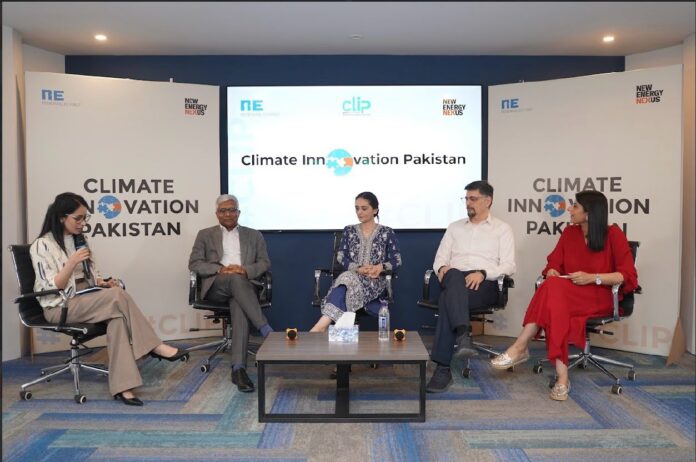Islamabad, May 1, 2025: As climate risks intensify worldwide, Renewables First and New Energy Nexus have partnered to introduce Climate Innovation Pakistan (CLIP) — the country’s first national platform devoted to accelerating local climate technology solutions.
Despite contributing less than 0.9% to global greenhouse gas emissions, Pakistan ranks among the nations most exposed to climate change impacts.
The launch ceremony at the National Incubation Centre marks a historic effort to address this urgent environmental challenge using cutting-edge, tech-driven solutions.
This collaboration brings two core pillars: a Climate Tech Incubator by Renewables First, offering a specialized curriculum for early-stage climate startups, and the New Energy Academy from New Energy Nexus, designed to elevate the skill set of Pakistan’s solar industry workforce.
Muhammad Bilal Abbasi, General Manager at Ignite Funds, praised CLIP, stating it “strengthens the existing innovation ecosystem while boosting Pakistan’s economy.” He emphasized that Ignite’s own incubation programs will synergize with CLIP’s mission.
Stanley Ng, Global Partnerships Director at New Energy Nexus, highlighted their global presence and shared expertise across South Asia.
He explained how the New Energy Academy will directly serve Pakistan’s growing solar workforce.
Aafaq Ali, Vice Chairman of the Pakistan Solar Association, welcomed the initiative, underlining the urgent need to raise the quality of solar installations across the country.
During the event, Ahtasam Ahmad from Renewables First unveiled his whitepaper, “Pakistan’s Climate Tech Opportunity,” which identified both the barriers and the untapped potential in Pakistan’s emerging startup landscape, along with a roadmap to scale climate innovation efforts.
A lively panel discussion, “The Role of Ecosystem Support Organizations (ESOs) in Building an Investable Climate Tech Pipeline,” brought forward key insights. Panelists agreed that impact investment is the most promising path for advancing climate tech innovation in Pakistan.
However, unlocking this requires tighter collaboration between public and private sectors, stronger links between academia and industry, and tailored support for startups at different stages.
Sayyed Ahmad Masood stressed that one-size-fits-all models no longer work — incubators need to adopt customized approaches based on the specific needs of each founder.
Shehryar Hyderi noted that while Pakistan’s startup scene currently faces a funding slowdown, climate tech has the potential to drive micro-recovery post-2025.
Merai Syed pointed out that support systems have lagged behind sector demands and called on universities to align more closely with real-world climate challenges.
Read More: Business Community Asks to End Anti-Export Levies
Finally, Zainab Saeed emphasized the immense potential for women-led ventures, urging ESOs to actively dismantle barriers like gender bias, limited access to capital, and risk perceptions that keep women from fully participating in climate innovation.
With the right policies, Pakistan’s climate tech sector stands at a turning point — ready for transformation, disruption, and lasting global impact.









